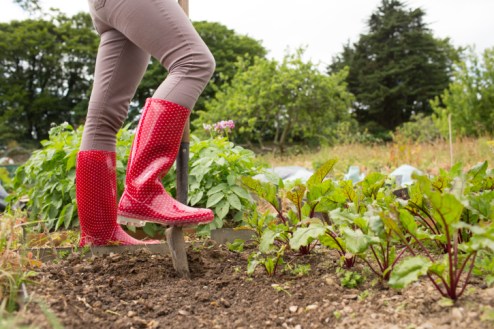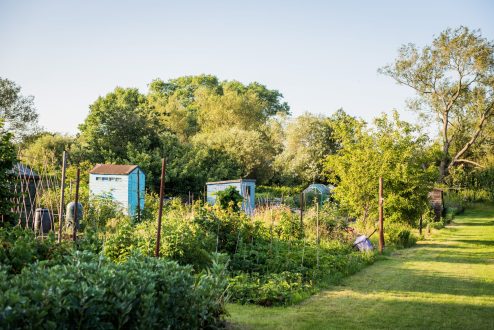Weleda: nourish and nature
Reflecting on the wind down of summer, heading in to autumn. The Weleda gardeners continue their harvests, nurturing the soil in readiness for the coming season. Meanwhile, Paul Rushton is enjoying the fruits of his labours...
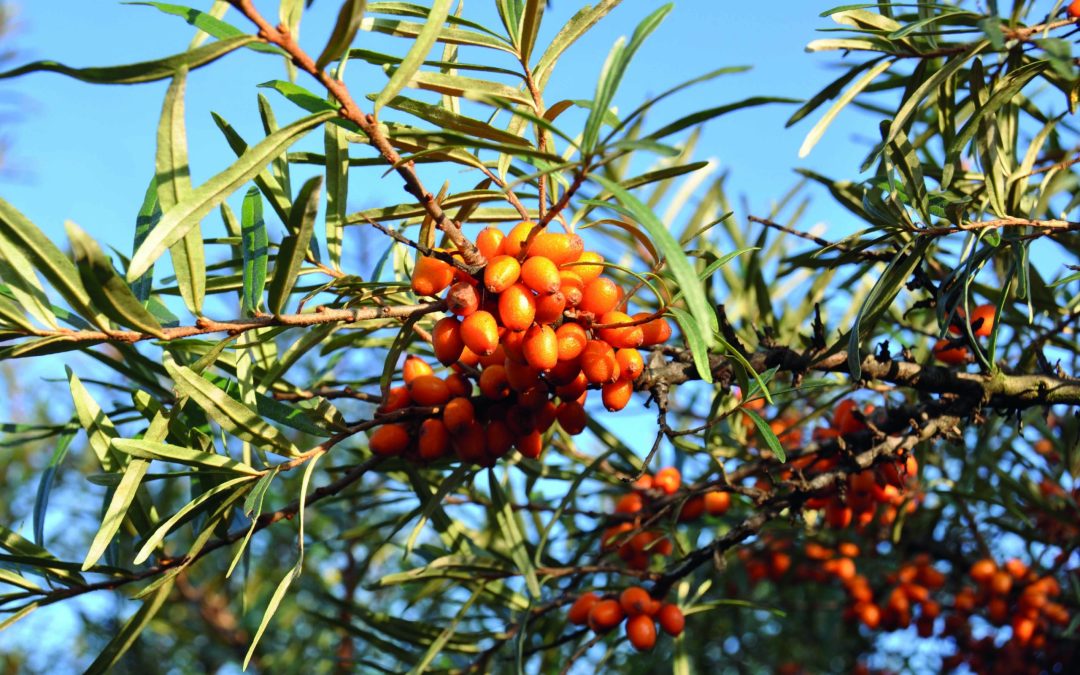
September sees the cooling of the garden as we head towards Michaelmas, signifying the dawn of autumn’s mellow fruitfulness.
Greenery starts to die back, leaves begin to dry and drop, and the soil starts its natural ‘breaking down’ processes. As the earth’s six-month-long inhalation slowly draws in, it is time for us to retreat a little, too, within the garden, into study and stocktaking, as well as the nurture and nourishment of our inner lives. Michaelmas, traditionally the beginning of the agricultural year, as well as the start of the academic year, brings a move towards building and bolstering after the exuberance of summer, and the vibrant plenty in our plots and gardens. But the harvest continues, too.
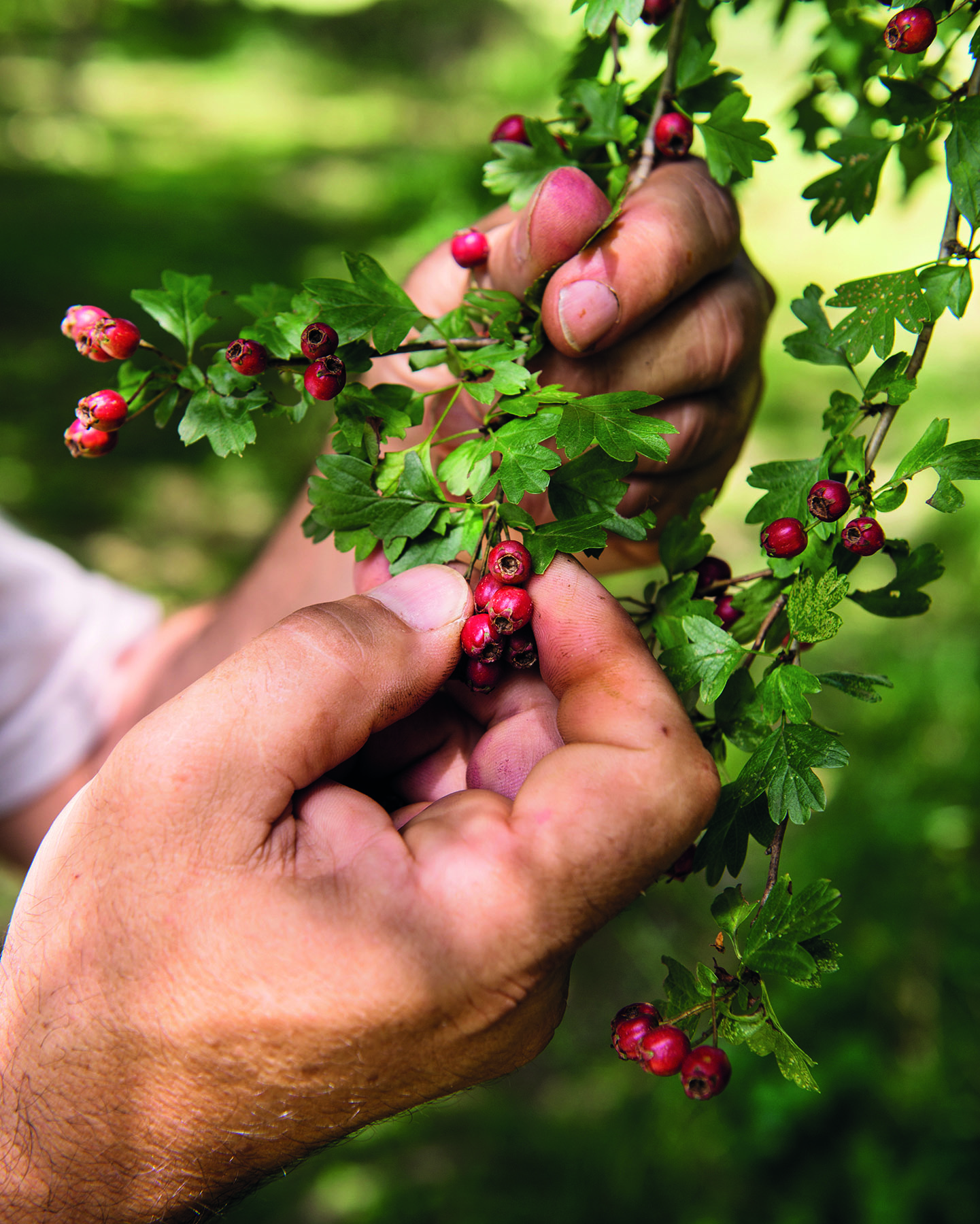
Hawthorn berries are used in herbal healing remedies
Taking stock
In the Weleda gardens, berries such as those of the hawthorn tree (Crataegus oxyacantha) are busily gathered. These berries have long been used in herbal healing medicines prescribed for the relief of heart problems, circulatory disorders and respiratory conditions.
Sea buckthorn is harvested by Weleda’s biodynamic farming partners in Italy at the end of the summer. The berries are a vivid orange, and are used in the Sea Buckthorn Elixir, which is a good natural source of vitamin C and ideal for the change in season.
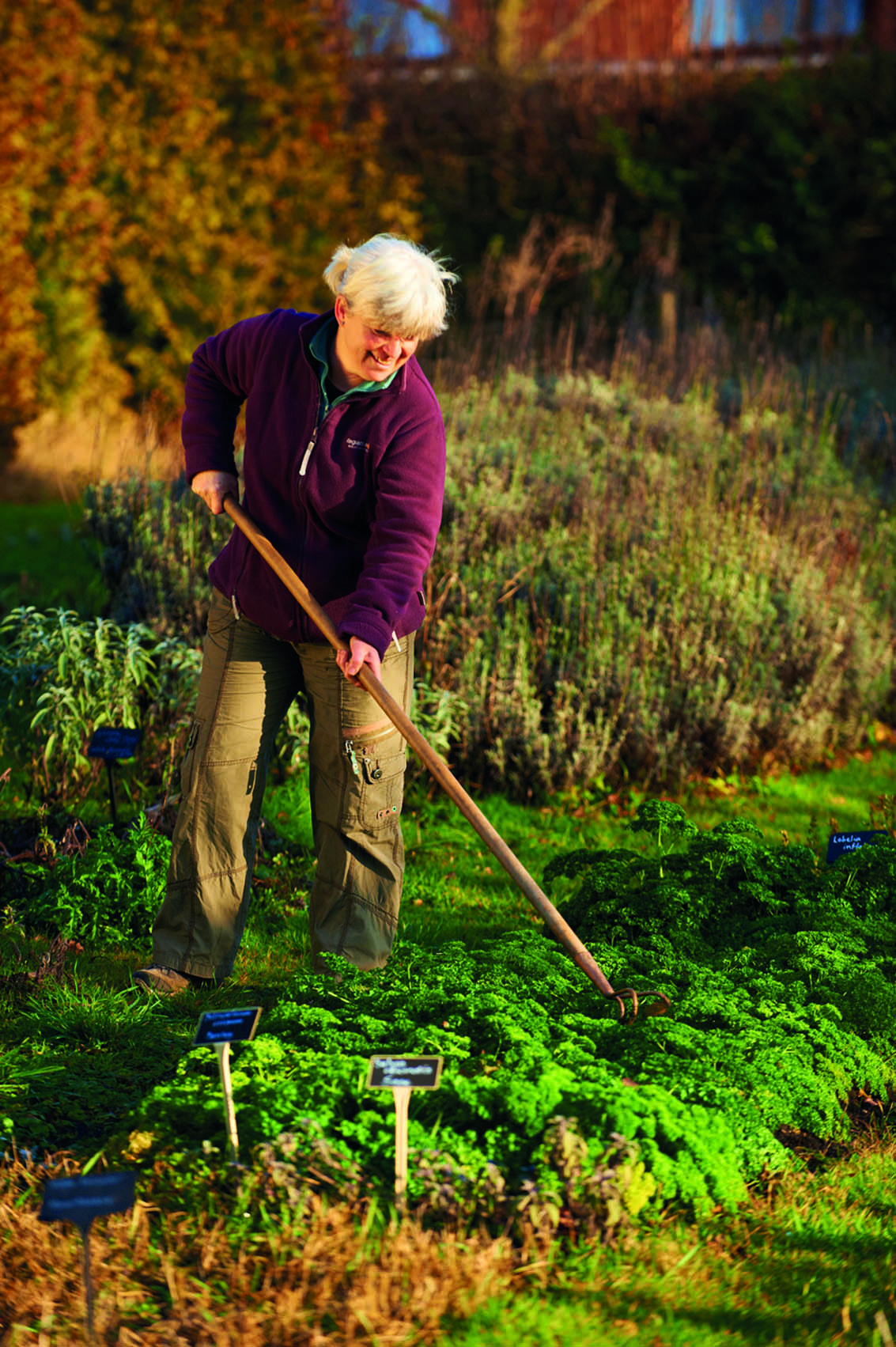
The last hoe of the year for the parsley at Weleda
There is a celebratory bonfire for the autumn equinox on 22 September and, a few days later at Michaelmas, the gardeners make their annual celebration soup from their biodynamic pumpkins for all Weleda staff. As the temperature starts to dip, we too begin to look to those deeply nourishing and warming pots, stews and soups for our family, echoing the bedding-down and rebuilding of nature.
At the Weleda gardens, it is time to clear the fixed beds and sow the last of the green manures on uncovered soil. For overwintering, rye grass is sown to put down its deep roots and break up compacted soil, and vetch, which fixes nitrogen from the atmosphere into nodules on its roots to be utilised by the spring-time crops. While there is warmth in the soil, Weleda’s subtly balanced compost is spread on perennials and sprayed with ‘Barrel prep’ or ‘Cow Pat Pit prep’ to help the soil assimilate or digest it.
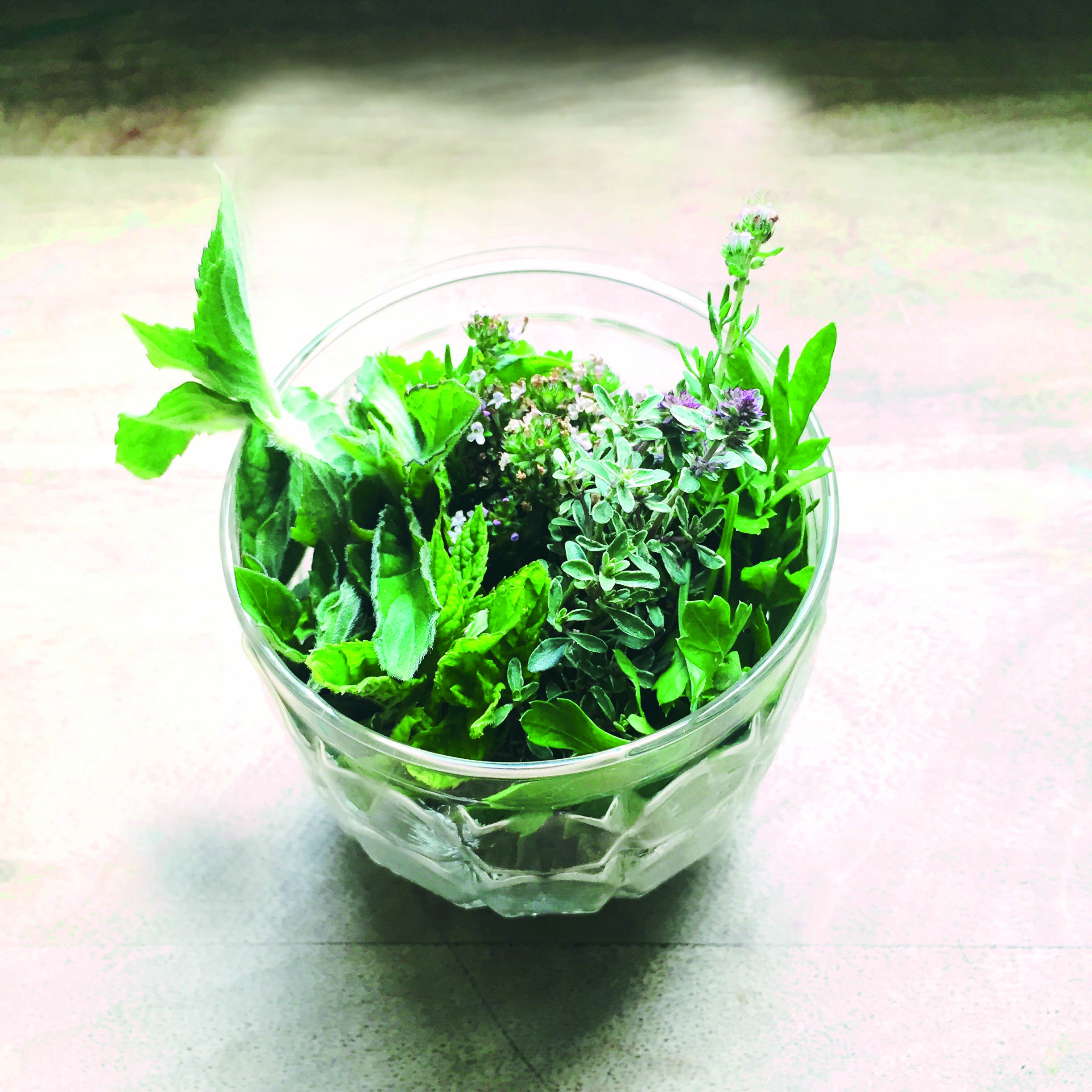
Summer’s crop of herbs
Biodynamic bounty
This time of year also sees the making of the biodynamic preparations, which Weleda does in symbiosis with a local biodynamic farm. This makes a wonderful communal event in the spirit of sharing and for manure, since Weleda has no livestock. ‘Horn manure’ and other compost preparations are made and buried in the living soil of the farm, distributed around the acreage to be unearthed again in the spring. I had the privilege of partaking in the gathering of these back in April and a ‘horn manure stir’, which provided us with a little glass bottle of our own that we sprinkled over the soil of our plot.
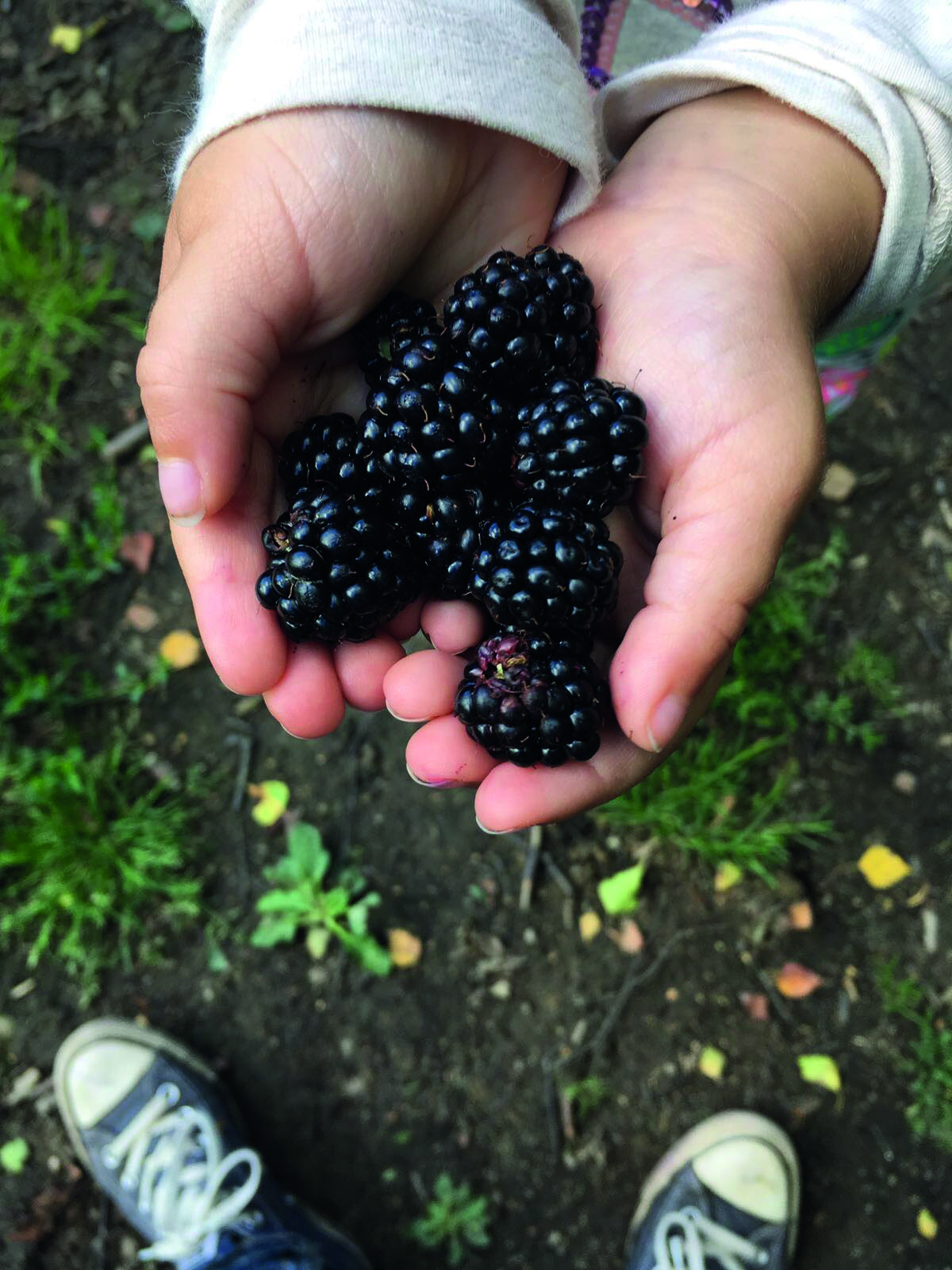
Hand-picked wild berries
At this time of year, our family celebrates the slow shifting of the seasons. We are thankful for the vegetables and herbs still tumbling from our little plot, and that which we’ve stored and saved from the summer: the spuds still sleeping in the soil, hanging garlic and herb bunches in the kitchen, the beans and sweetcorn we have dried or frozen, tomatoes we have pulsed into passata and the preserves made from home-grown strawberries and wild woodland blackberries, early this year, but well-foraged by eager nippers with inky fingers.
We stock the wood-burner and squat around back garden bonfires, adding extra layers of clothing and of learning, year on year.
Find out more from Weleda here.
Follow Paul’s blog, The Balance Plan (balanceplan.com), and at @mrpaulrushton

